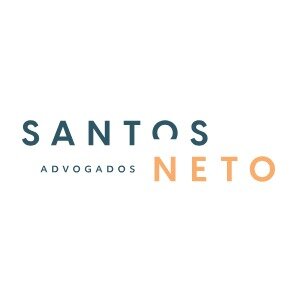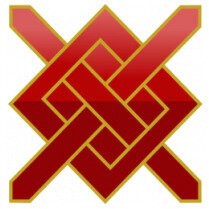Best International Trade Law Lawyers in São Paulo
Share your needs with us, get contacted by law firms.
Free. Takes 2 min.
List of the best lawyers in São Paulo, Brazil
About International Trade Law in São Paulo, Brazil
International Trade Law in São Paulo, Brazil, is a dynamic and multifaceted area of law that governs the rules and regulations of trade between Brazil and other countries. São Paulo, as Brazil's financial hub, plays a crucial role in both regional and international trade activities, making it essential for businesses and individuals engaged in trading activities to understand the legal frameworks in place. International Trade Law covers a wide range of areas including trade agreements, export and import regulations, tariffs, trade disputes, and compliance with both local and international standards.
Why You May Need a Lawyer
There are several scenarios where legal assistance in International Trade Law may become necessary:
- Companies planning to expand their operations overseas may require guidance on foreign investment regulations.
- Businesses involved in cross-border transactions may need assistance in drafting and negotiating contracts.
- Understanding and complying with import and export laws and regulations to avoid penalties.
- Resolving trade disputes or litigations arising from breach of agreements or non-compliance issues.
- Navigating complex tariff classifications and managing duties and taxes.
- Ensuring adherence to international trade agreements and standards.
Local Laws Overview
In São Paulo, the framework of laws relevant to International Trade includes both Brazilian federal laws and international treaties that Brazil is a party to. Key aspects include:
- Brazil’s foreign trade policy laws that outline the governing principles of trade operations.
- The General Agreement on Tariffs and Trade (GATT) and the World Trade Organization (WTO) agreements, which influence Brazil's trade agreements.
- Customs regulations that define the procedures for importing and exporting goods.
- Tax laws applicable to international transactions, including Imposto de Importação (Import Duty) and IPI (Industrialized Products Tax).
- Environmental and health standards that impact the importation of goods.
Frequently Asked Questions
What is the role of customs in international trade law?
Customs authorities enforce import and export regulations, ensuring compliance with trade laws, collecting duties, and preventing illegal trade.
What documents are typically required for exporting goods from Brazil?
Common documents include a commercial invoice, bill of lading, export declaration, and any permits required for specific goods.
How are trade disputes resolved in São Paulo?
Trade disputes can be resolved through negotiation, arbitration, or litigation, depending on the nature of the dispute and any contractual agreements in place.
What is a trade tariff and why is it important?
A trade tariff is a tax imposed on imported or exported goods; it’s crucial for regulating trade balance, protecting domestic industries, and generating revenue.
Are there any free trade agreements that Brazil is a part of?
Yes, Brazil is part of several agreements, including the Southern Common Market (Mercosur), enhancing trade with member countries.
What is the impact of international trade sanctions on Brazilian companies?
Sanctions can limit or prohibit trade with certain countries, affecting companies relying on international markets for resources or sales.
How can I ensure compliance with local trade regulations?
Hiring legal expertise, staying updated on laws, and engaging in compliance audits are effective strategies for ensuring regulatory compliance.
What is the significance of the WTO for Brazilian trade?
The WTO facilitates Brazil's participation in a rules-based international trading system, offering a platform for dispute resolution and promoting trade liberalization.
How do local and international environmental laws affect trade in São Paulo?
Trade activities must align with environmental regulations, ensuring sustainable practices and minimizing ecological impact.
Can I register a foreign trademark in Brazil?
Yes, through Brazil's National Institute of Industrial Property (INPI), foreign companies can register trademarks to protect their intellectual property in Brazil.
Additional Resources
For more information, consider reaching out to the following resources:
- Ministry of Development, Industry and Foreign Trade (MDIC)
- World Trade Organization (WTO)
- Brazilian Trade and Investment Promotion Agency (Apex-Brasil)
- São Paulo Chamber of Commerce
- Brazilian Association of International Trade Companies (ABCI)
Next Steps
If you require legal assistance regarding International Trade Law in São Paulo, consider the following steps:
- Consult with an experienced international trade lawyer familiar with both Brazilian and international trade laws.
- Gather all relevant documents related to your trade activities for review.
- Communicate clearly your issues and objectives to your legal counsel.
- Stay informed on evolving trade regulations and seek ongoing legal advice as necessary.
These steps can help you navigate the complexities of International Trade Law and position your business for success in São Paulo's competitive trade environment.
Lawzana helps you find the best lawyers and law firms in São Paulo through a curated and pre-screened list of qualified legal professionals. Our platform offers rankings and detailed profiles of attorneys and law firms, allowing you to compare based on practice areas, including International Trade Law, experience, and client feedback.
Each profile includes a description of the firm's areas of practice, client reviews, team members and partners, year of establishment, spoken languages, office locations, contact information, social media presence, and any published articles or resources. Most firms on our platform speak English and are experienced in both local and international legal matters.
Get a quote from top-rated law firms in São Paulo, Brazil — quickly, securely, and without unnecessary hassle.
Disclaimer:
The information provided on this page is for general informational purposes only and does not constitute legal advice. While we strive to ensure the accuracy and relevance of the content, legal information may change over time, and interpretations of the law can vary. You should always consult with a qualified legal professional for advice specific to your situation.
We disclaim all liability for actions taken or not taken based on the content of this page. If you believe any information is incorrect or outdated, please contact us, and we will review and update it where appropriate.

















